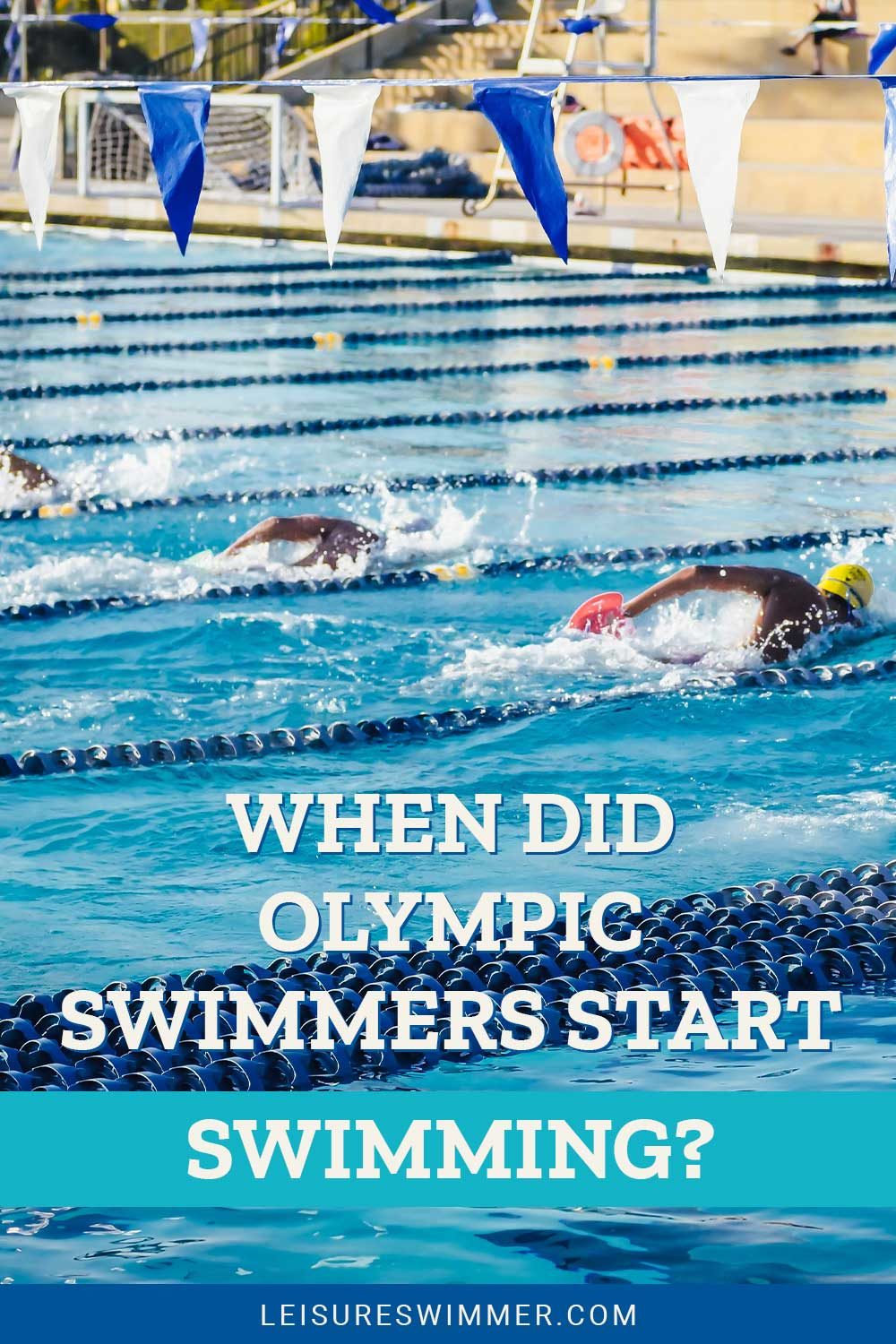When Did Olympic Swimmers Start Swimming?
We may earn commissions for purchases made through links on our site. Learn more on our about us page.
Olympics swimmers start at a very young age; usually, the child finds a youthful passion for the activity, and it matures into wanting to be good at it.
The majority from there decide to compete at the High School level, and a select few become talented enough to reach the collegiate level or the Olympic pools.
At your local recreation center or YMCA, there are programs that will have children’s level swimming lessons, and the kids will get an opportunity to learn the basics within the safety of a trainer’s eye.

What is the Earliest Start for Swimming?
There will be differing opinions on the best time to start an infant out in the pool, and some kids will be ready at three years old. However, the American Academy of Pediatrics states that swimming lessons will be most effective at four years of age or older.
By this time in a child’s development, they will have the motor skills needed to function fully in the water without fear. There are, however, parents that will have infant swimming classes which are for both the mother’s and the infant’s benefit.

What is the latest an Olympic Swimmer Started?
There are a few instances where a swimmer started competing ‘later’ in life; most professional swimmers got their start during infancy.
This is generally between the ages of five and six years of age; then, as they mature into adolescence, coaches and trainers ramp up the intensity of the workouts and weightlifting exercises.
One example of this would be Olympic gold medalist Rowdy Gaines, who was given the scholarship to compete at the University of Auburn between the years of 1977 and 1981, where he set world records and became a five-time NCAA champion.
Unfortunately, he missed the 1980 Olympics because of the Moscow Boycott, but then there was the 1984 Summer Olympics, where he medaled in the 100-meter freestyle and anchored two relay teams in the 4X100 meter freestyle relay and the 4×100-meter medley.
Why is Starting Early Important?
Starting early will benefit the swimmer because the brain is still developing between three and eight years old.
Learning motor skills as a child will stay with the person in their later lives. In other words, the skills learned when young would make it easier for a person in their older years to learn swimming techniques and develop confidence in the water if appropriately taught.
There is also the benefit of getting into the competitive swimming community early to make connections and find the coaches and staff that will take the young swimmer to the next level if the skill is there.
When was the first Olympic swimming competition?
As many historians are privy to, the Olympic games started in Ancient Greece as a competition-based event for champions and heroes alike to model the best of humanity’s capabilities.
Most of the competitions were strength and speed based, but it was not until hundreds of years later that organized swimming got into the mix.
Organized swimming competitions began forming in London, UK, around 1837, and the first official swimming championship was held in Australia in 1846.
However, the first modern Olympic games were held in 1896, and the first women’s swimming events took place at the 1912 Stockholm games.
What Were the First Categories?
Interestingly enough, the first competitions in Athens for the modern Olympic games had swimming events that were for the Greek Military.
The events included the one-hundred-meter freestyle for sailors, in which only members of the Greek Navy would be allowed to compete.
Most of the events leading up to the WWII era were done outside in the open water, which forced each nation’s best athletes to contend with the natural elements and weather.
Post-WWII Olympic swimming events took place inside, leading to the more modern-looking competitions we see in today’s games.
Final Thoughts on When did Olympic Swimmers Start Swimming
The original Olympic Swimming athletes were some of the toughest people in the world; these competitors were exposed to military training elements and competed for the right to be called the best.
After WWII, the facilities and technology of swimwear, wetsuits, and other gear made for faster times and more confident competition.
Soon thereafter, with these developments, the rise of superstar athletes became part of the Olympic scene. Mark Spitz, in 1968, won a total of six gold medals and bettered that feat with the 1972 Olympics, where he brought home seven gold medals.
So it certainly does not hurt to start a youngster early to get to this level and at least give the child a chance to compete later in life.


